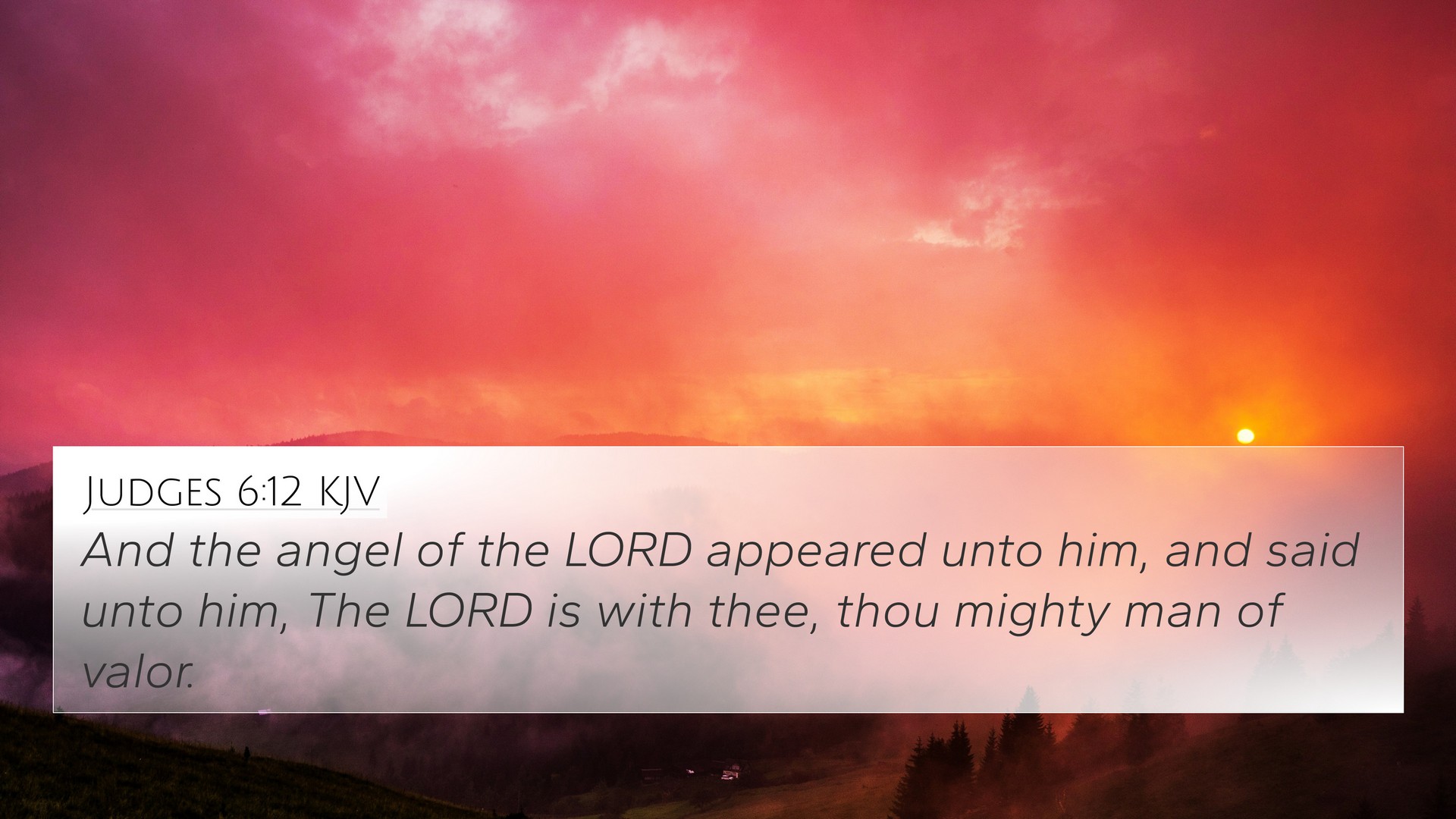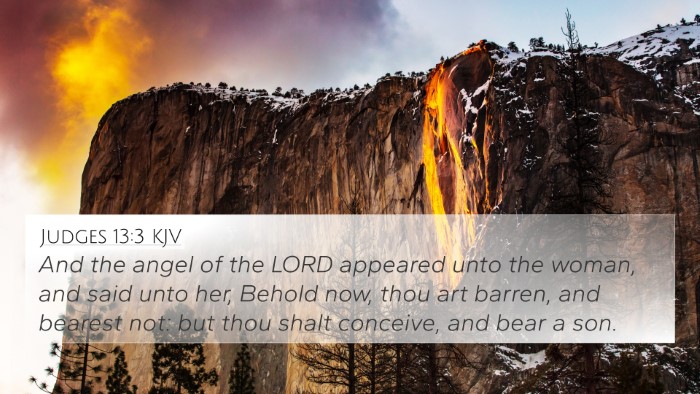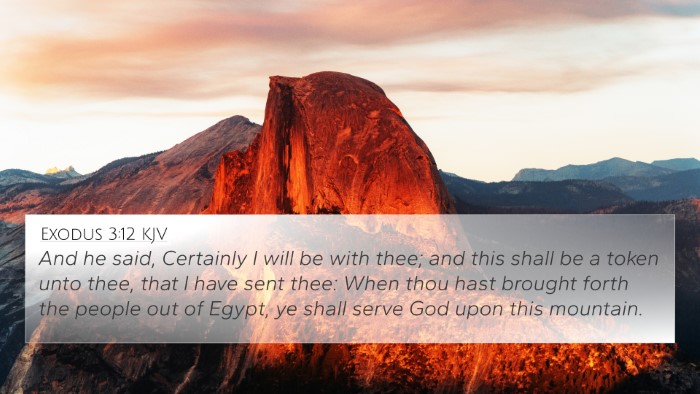Understanding Judges 6:12: A Comprehensive Analysis of the Biblical Context
Judges 6:12: "And the angel of the Lord appeared unto him, and said unto him, The Lord is with thee, thou mighty man of valour."
This verse captures a pivotal moment in the narrative of Gideon, a judge of Israel. Here, we explore its deeper meanings, the context surrounding it, and its connections to other scriptures.
Contextual Background
In the book of Judges, Israel faces oppression from the Midianites due to their disobedience to God. God raises up judges to deliver Israel from their enemies. Gideon, living in a time of despair, is called by the Lord to lead Israel.
The Significance of the Angel's Appearance
The appearance of the angel signifies divine intervention and support. It underscores God’s awareness of Israel's plight and His commitment to deliverance.
Understanding the Title: 'Mighty Man of Valour'
Interestingly, Gideon does not yet display the characteristics of a 'mighty man' at this point; he is hesitant and fearful. This title serves as both a prophetic declaration and an encouragement to Gideon that God recognizes his inherent potential.
Combined Insights from Commentaries
The following insights combine interpretations from renowned biblical commentaries:
- Matthew Henry: Henry emphasizes the grace of God in calling Gideon despite his humble circumstances and his initial doubts about his own capability.
- Albert Barnes: Barnes highlights the importance of God's assurance, noting that the phrase 'The Lord is with thee' serves as a spiritual truth that strengthens Gideon's faith.
- Adam Clarke: Clarke notes that this encounter illustrates God’s method of selecting leaders—not based on their current state, but on their potential to fulfill His plans.
Cross-Referencing and Thematic Connections
Judges 6:12 can be aligned with several other scriptures that reveal similar themes of divine calling and empowerment:
- 1 Samuel 16:7: "For the Lord sees not as man sees; for man looks on the outward appearance, but the Lord looks on the heart."
- Isaiah 41:10: "Fear not, for I am with you; be not dismayed, for I am your God; I will strengthen you, I will help you."
- Jeremiah 1:5: "Before I formed you in the womb I knew you, and before you were born I consecrated you."
- Ephesians 2:10: "For we are his workmanship, created in Christ Jesus for good works, which God prepared beforehand, that we should walk in them."
- Matthew 28:20: "And behold, I am with you always, to the end of the age."
- 2 Timothy 1:7: "For God gave us a spirit not of fear but of power and love and self-control."
- Hebrews 13:5: "I will never leave you nor forsake you."
Thematic Analysis
Several key themes emerge from Judges 6:12:
- Divine Assurance: God's promise of His presence reassures Gideon, which is a common message throughout scripture.
- Potential and Identity: God speaks to Gideon’s potential, reflecting on how He sees individuals not by their current state but by what they can become through Him.
- Courage in Calling: The call to leadership often comes with fear, yet God provides the necessary encouragement and strength to follow His will.
Applications for Today
This verse is not merely a historical account; it carries timeless truths for believers today:
- Embrace God's Calling: Just as Gideon was called, individuals today are encouraged to respond to God’s call, regardless of their present insecurities.
- Trust in Divine Presence: The assurance of God’s presence can empower believers to face challenges and fear.
- Recognize Potential: Like Gideon, each person has inherent potential and purpose bestowed by God, even when they cannot see it themselves.
Conclusion
Judges 6:12 serves as a powerful reminder of God's ability to see beyond our fears and weaknesses. This verse, along with its connections to other scriptures, illustrates a cohesive narrative of God’s faithfulness, encouragement, and the call to courage in the face of daunting challenges.













